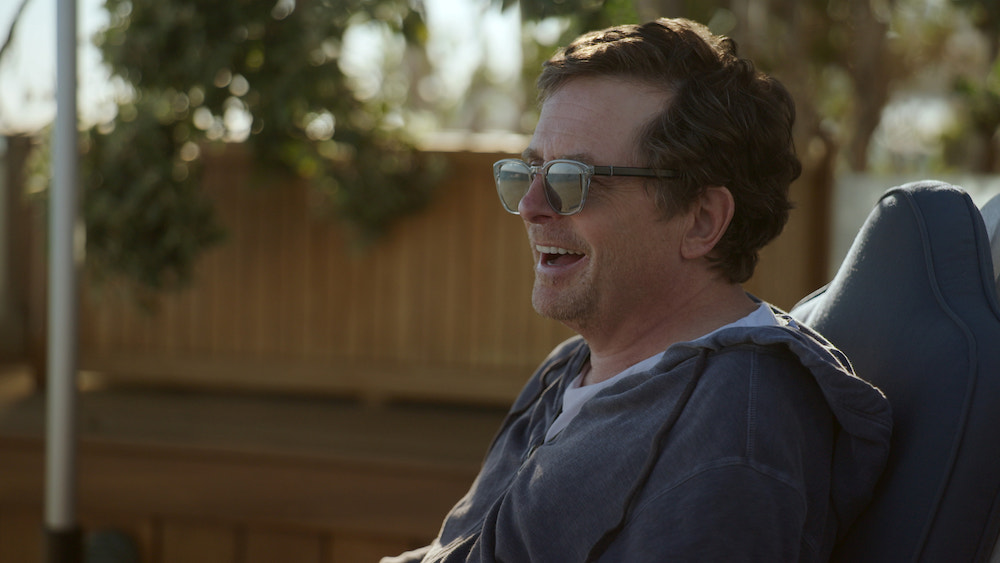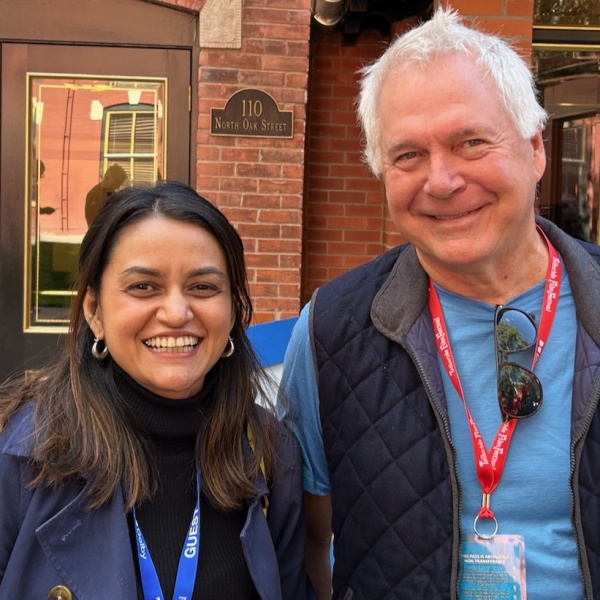Jim LeBrecht is the Oscar-nominated co-director of “Crip Camp,” co-directed by Nicole Newman, about a summer camp for teens with disabilities that inspires advocacy and legislative changes. LeBrecht is also a sound designer and mixer and Disability Rights Activist.Davis Guggenheim’s “Still: A Michael J. Fox Movie” premiered at the 2023 Sundance Film Festival and has won five Critics Choice Documentary Awards (including Best Documentary Feature), was the National Board of Review’s Best Documentary, won Best Editing at the Cinema Eye Honors, and is nominated for Outstanding Achievement in Documentary at the DGA Awards.
As someone with a disability, who works in the entertainment industry, when I hear about a documentary or narrative about someone with a disability, I immediately get suspicious. And that suspicion comes from knowing what the history of disability representation has been in the past. Many times, the stories and characters have been problematic and harmful.
Many people have negative preconceptions of what having a disability must mean. They think, “Oh my God, if it happened to me, I’d never be able to handle this,” or, “If I ever end up ‘like that’, kill me.” I believe that people feel that way because of the poor representation they experience, mostly in television and film.
There are old, worn-out tropes about the tragedy of having a disability, overcoming one’s disability, or the “Super Crip” who can climb Mount Everest with their pinkies. And there are films like “Me Before You”, where someone who had acquired a disability chooses euthanasia despite having wealth and love. This is often the case because these projects have been developed without anyone with a disability being involved.
And so, when I first learned about “Still: A Michael J. Fox Movie,” I thought, what am I in for? When I watched the film as a member of the motion picture Academy’s documentary branch, I was wonderfully surprised. I loved it. It did all the right things. Director Davis Guggenheim showed that a filmmaker without a disability (as far as I know) can make an excellent film around disability, but it’s rare that somebody does it this well. And just let me add that “Still” is no vanity documentary. Far from it.
The key to this success, as in many documentaries, is that you need a willing participant. You need somebody who is going to trust you. Someone who has developed that kind of mutual trust with the filmmaker that they are going to tell your story accurately. This is what I saw when I watched the film. The first thing that blew my mind, or the first thing that really impressed me, is that moment when Michael J. Fox goes outside his home in New York, walking down the street and he falls over. A woman looks at him and says, “Are you OK?” Michael replies, “I’m fine. You knocked me off my feet,” which is one of those “oh my God” perfect lines. Michael doesn’t skip a beat.
That is the kind of humor that is so important to see. As we watch the film unfold, we learn that that’s the way Michael has always been. And continues to be. Despite acquiring Parkinson’s Disease, Michael isn’t his disability, he’s Michael. We may see him physically different, but from what I gathered, that’s all that has changed. I was fortunate enough to meet him last week at a Q&A for the film in San Rafael, Calif. The guy we get to know in the film, that’s the Michael I hung out with.
What I hope people will take away from watching “Still” is to understand what acquiring a disability can be like. It’s not a walk in the park (pun intended), maybe not exactly what you would wish for (to say the least). And to be clear, not everyone can weather this kind of life-changing event and come out on the other side with the outcome that we see in Michael’s story. It’s not a fault on their part; it simply is what it is.
I believe that the goal should not be overcoming a disability. It should not be about fixing a disability. For a vast number of people, that’s not going to be their reality. So many disabled people that I’ve become friends with feel that the goal is getting back to your true self. You will have certain changes in your lifestyle, for sure. But you can still ask yourself, what do I want in life? What was driving me before acquiring this disability or illness? Is that something that I want to continue?
I think that it’s rare to see a film with someone handling what life has put in front of them in the way Michael has. Michael didn’t hold anything back, and Davis and his team produced an authentic story of someone with a disability. When we do have great representation, like “Still,” it’s especially important for someone like me who works in the industry to support it. We need more authentic stories that are informed by the lived experiences of those with disabilities. There is an audience out there for these films and television shows. I feel blessed that the film “Crip Camp,” which was co-directed and co-produced with Nicole Newnham and myself, really opened up a lot of minds. I kept hearing, “I didn’t know this story existed,” and “this is a really compelling film.” It may sound like I’m exaggerating by giving so much importance to this film, but like any marginalized community, building a great body of work provides an example to the rest of the industry of how authentic and informed representation is accomplished and possible. My hope is that films like “Still” will hasten the day when harmful or demeaning films and television shows are no longer being produced.
I hope that after watching “Still,” everything I’ve written here rings true. I’m grateful that Michael and Davis allowed us to see Mike’s journey. This is the real deal. That’s the Michael that’s always been there, even before Alex P. Keaton. And he’s still here. Yay!
A point about language: When I write about people seeing the film, I use the word “seeing” because that’s part of the nomenclature that many people associate with experiencing a film. But millions of people take in films and television shows by relying on access features such as captioning, audio description or transcripts written in a narrative style.


